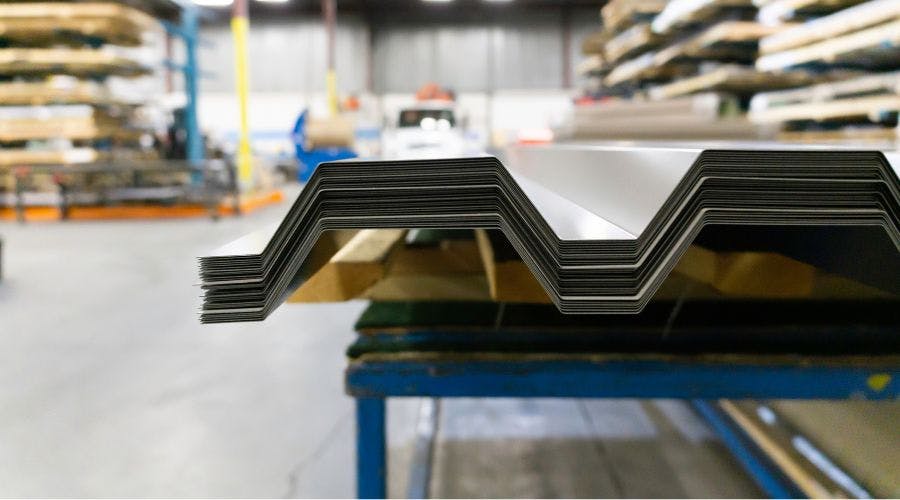Sheetmetal Apprenticeship
Undertaking a sheetmetal apprenticeship will prepare you for a broad range of precision metal fabrication roles.
Your day-to-day work will include marking out, cutting, shaping and joining sheet metal using a mix of specialised tools.
Success in a sheetmetal apprenticeship requires manual dexterity and an aptitude for delivering high quality components that will be used in a range of industries.
How Long is a Sheetmetal Apprenticeship?
You will spend around 4 years working and studying during your sheetmetal apprenticeship, which includes paid hands-on training in a workshop or similar environment, and the completion of a nationally accredited qualification, MEM31922 Certificate III in Engineering – Fabrication Trade (Sheetmetal).
A career pathway through a sheetmetal apprenticeship can lead to employment opportunities in some of Australia’s busiest industries. Sheetmetal fabricators are always in demand, and employers are often ready to take on new apprentices.
This trade specialisation is part of the Manufacturing and Engineering training package that includes other qualifications in Boilermaking, Fabricating, and Casting and Moulding.

What is a Sheetmetal Worker
Sheetmetal workers are skilled tradespeople who fabricate and install metal products such as ductwork, roofs, siding, and gutters. They work with various types of metal, including stainless steel, copper, aluminium, and galvanized steel, generally under 6mm (lighter gauge metals).
Sheetmetal workers use specialised tools and equipment, such as laser and placement cutting machines, power shears, press brakes, turret punchers, and welding machines to cut, bend, and shape metal into specific forms.
Sheetmetal fabrication tasks include:
- Reading and interpreting detailed drawings and specifications to determine job, materials and equipment requirements
- Marking out stock with reference points and lines, using templates, gauges and other measuring instruments
- Joining metal parts by riveting, bolting, welding, brazing or soldering and drill mounting holes
- Polishing and completion of precision products
- Shaping and forming cut material into products by operating sheetmetal shaping, forming, cutting and joining machines
Sheetmetal workers work in a variety of industries, including manufacturing, food production, construction, marine and aerospace. They may work for companies that specialise in the fabrication and installation of metal products, such as roofing or air conditioning (HVAC) contractors.
Sheetmetal Worker Salary
A qualified sheetmetal worker typically earns $80,000 to $85,000 in Australia in 2026. (Seek)
As a sheetmetal apprentice, you will be usually paid under the Manufacturing Award, and wages depend on various factors including age at commencement and if you completed Year 12.
Indicative weekly Award wages for a sheetmetal apprentice as at 1 July 2024:
-
Aged under 17 years: $533.90 to $940.33 per week
-
Aged 17 to 20 years: $587.71 to $982.30 per week
-
Aged over 21 years: $854.47 to $982.30 per week
Pay will also be determined by any relevant Modern Award inclusions, host-specific benefits, and government incentives. Some host employers may choose to pay above Award wages.
Sheetmetal Apprenticeships are included on the Government's Australian Apprenticeships Priority List, and eligible apprentices can receive additional support payments.
Sheetmetal Apprentice Skill Requirements
During your sheetmetal apprenticeship you will gain exposure to a wide range of sheet metals and other materials, and different tools of the trade. To succeed you’ll need to demonstrate these sorts of personal qualities:
- Detail-oriented
Sheetmetal work requires precision and attention to detail. You should be able to follow instructions carefully and pay close attention to measurements, angles, and other specifications.
- Physical Dexterity
Working with metal is often a physically demanding job that requires a lot of bending, lifting, and standing. The ideal sheetmetal apprentice should have good hand-eye coordination and be comfortable working in a variety of positions.
- Safety Focus
As sheetmetal work involves heavy machinery and potentially hazardous materials, being aware of safety protocols and following them to prevent accidents and injuries is a requirement.
Find a Sheetmetal Apprenticeship
Find a sheetmetal apprenticeship with MIGAS Apprentices & Trainees. We will employ and place you with the right host company where you’ll gain the knowledge and skills needed to become a qualified sheetmetal worker.
Latest Apprenticeships
Quick Links
A sheetmetal apprenticeship is a specialisation within fabrication trade engineering.
You might consider a Boilermaker Apprenticeship as well.
View the MIGAS Jobs Board to view current engineering trade apprenticeships.